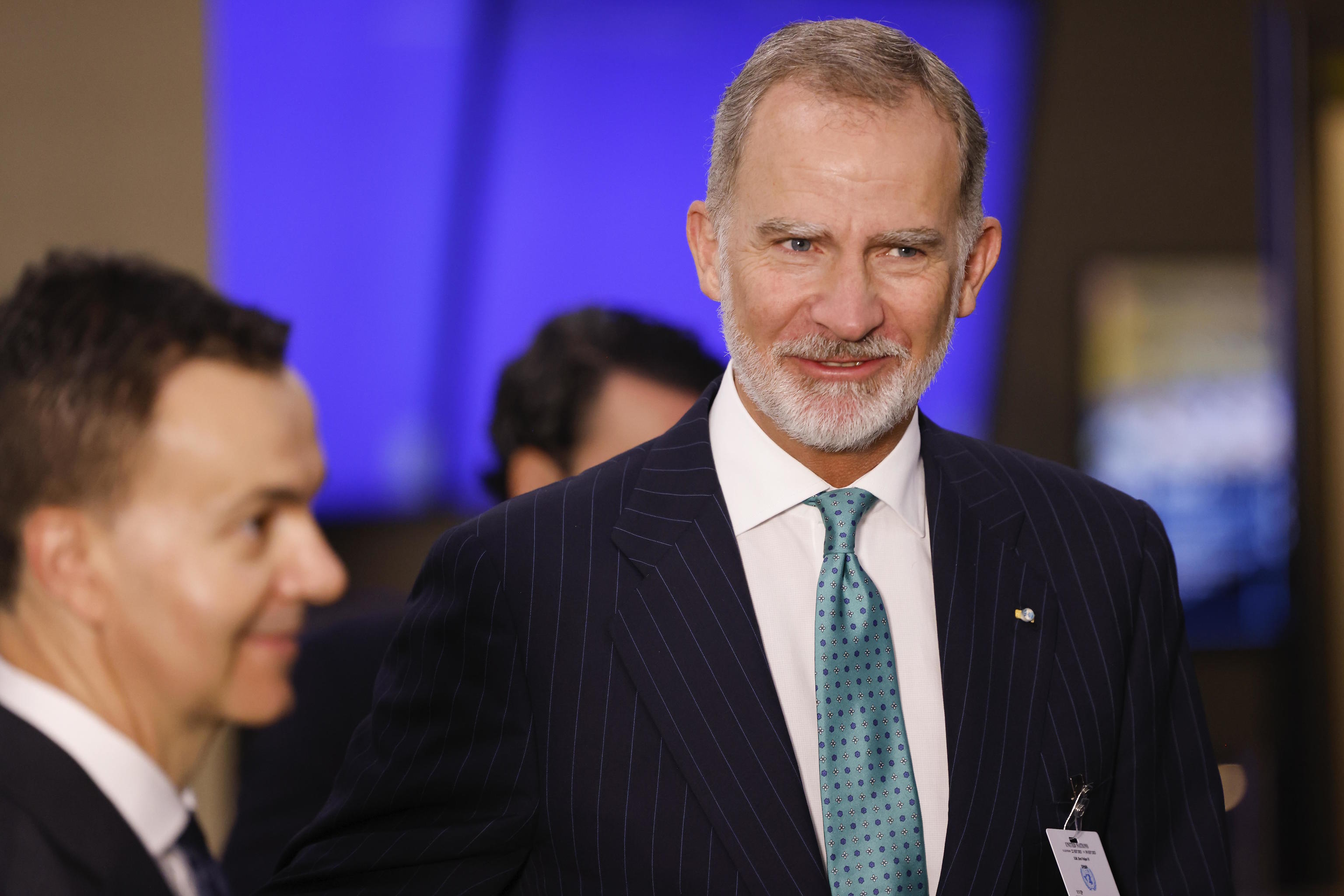For the first time since Pedro Sánchez became president of the Government, the Spanish delegation at the UN General Assembly is led by the King. This is no coincidence. Felipe VI is the maximum representative of Spain and, therefore, responsible for attending the official reception organized by Donald Trump for the attendees and will deliver the speech before the plenary on Wednesday. Government sources explain that it is "relevant for Spain to be symbolically represented by the Head of State."
Seven years ago, Donald Trump received the King and Queen at the White House. It was in June 2018. They coincided at the funeral of Francisco I. But now the scenario and context are complex. "It is an important moment for the UN," diplomatic sources point out. "There are opposing views and encounters on multilateralism," the Government states. As Trump has shown, messages are important. What is intended to be conveyed. "(The King) Will address the different challenges facing the international community in a turbulent moment of profound transformation of the main axes that sustain the international architecture," government sources explain.
Trump's intervention has shaken the UN. It shook positions, thoughts, principles... the Government avoids clashing with the US president. They prefer to align with Antonio Guterres, Secretary-General of the United Nations, and present their proposals in a way that the mere contrast with Trump makes the distance clear. And this exercise of not raising the tone implies the responsibility of the King to be the voice and with his intervention the response and rebuttal to the positions of Trump and other leaders.
Third Vice President Sara Aagesen, who is also in New York attending the UN General Assembly, anticipated that the monarch's intervention will focus on the "defense of human rights, peace, and multilateralism."
In a meeting with the Spanish community before participating in the Assembly, the King outlined some of the main points of the message that our country brings to the US and that represents a contrast to the attitude of others who question multilateralism, like Trump himself. "Spain wants to act, and faces this 80th session with the conviction that inclusive and strengthened multilateralism is the most effective tool to address the great challenges of our time. We defend the central role of the United Nations in protecting an international order based on rules and respect for the rule of law, a commitment that we share with those who gather here today."
It is expected that the King's message will be in line, as it has been in his recent interventions, with the position of La Moncloa: the Assembly "takes place at a moment of enormous significance for multilateral diplomacy; a crucial moment that does not allow for hesitation and requires from everyone a firm, solidary, and effective cooperation...", Felipe VI anticipated at the reception for the Spanish community in New York.
The Spanish delegation experienced together in the plenary on Tuesday Trump's intervention, with a speech against the current, questioning the values, principles, and work defended by the UN and countries like Spain. "We defend that vision and that importance of continuing to support the United Nations system and working to make it efficient and continue functioning." The Spanish delegation opts for restraint in the face of Trump's challenges. Not to clash and wielding our position as a response. "There are many voices aligned with Spain, with the EU, and with the defense of this multilateral, open, and coordinated process. And that is what we will continue to do."
This moderation and restraint shown towards Trump was exemplified by José Manuel Albares, Minister of Foreign Affairs, in an interview on Ser. "It is a vision very distant from Spain's foreign policy and vision. He is the President of the US, he can express on behalf of the citizens whatever he wants. Spain defends multilateralism, the UN is more indispensable today than when it was created."
